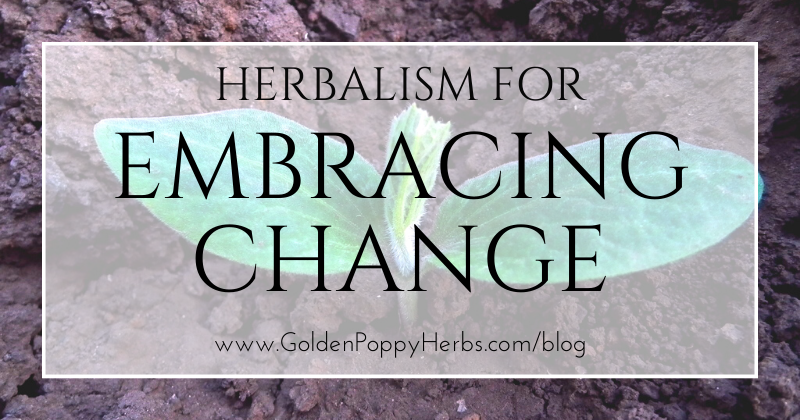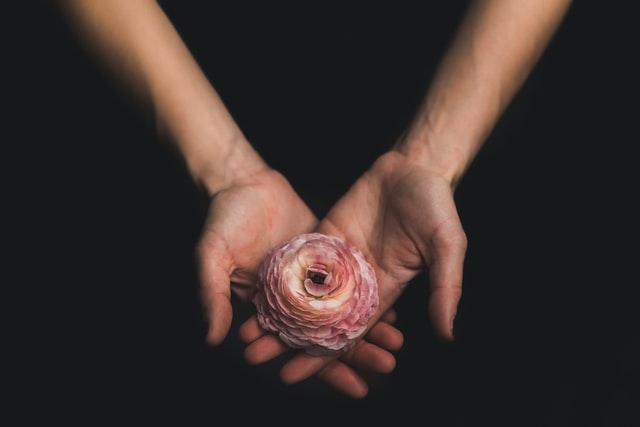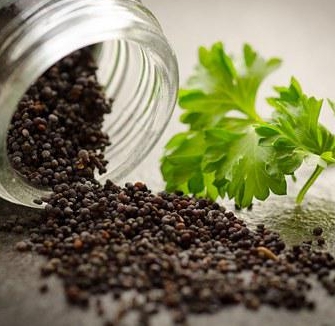
And whether it is the start of a new year, or the turning of a new season, the one consistent thing is that change is inevitable. And, yet again, we can turn to our herbal allies as teachers and guides for how to embrace change, and move through it in more flow.
“Continuity gives us roots; Change gives us branches, letting us stretch and grow and reach new heights.” ~ Pauline R. Kezer
What Plants Teach us About Change
Nature is a very fascinating guide when it comes to understanding how to move with change. Nature tends not to resist change but instead adapt to it, accepting it as truth.
As the seasons come, plants utilize conditions in a way that best fits their purpose. A seedling embraces the return of the sun and the wet conditions of spring to grow rapidly, intuitively knowing that drier days may be ahead. And when the drier days come, the plant adapts yet again, changing root systems to take advantage of less water when it is available, or dropping non-critical branches and leaves to alleviate expenditure of unnecessary energy. Furthermore, a plant does not force itself to continue to flower and grow in the winter – instead, it takes this as an opportunity to return to the earth, rest, and renew for the spring to come.
Charles Darwin has pointed out that, “it is not the strongest of the species that survives, nor the most intelligent that survives. It is the one that most adaptable to change.” It is the trees that have learned how to bend and move to find limited amounts of sunlight in a densely packed forest or the fungus that has learned how to live in harmony with other living things that continue on. It is those that do not resist change, but instead those that grow with it, and surrender to it; not allowing it to rule them, that progress forward.
However, perhaps the most beautiful, and most important lesson that nature teaches us about change, is that it does not have to be scary, or impact us negatively. It is true that change is not always necessarily easy, but change can also be an incredible thing, and sometimes an absolutely necessary thing, for our life journey. When we choose to live in a harmonious flow with change, we can more easily identify the opportunities they may bring.

Adaptogenic Herbs
While a relatively newer term, in that it was not used heavily in the herbalist community prior to the 1950s, the term “adaptogen,” coined by Russian scientist Dr. Lazarev is used to describe any substance that “had a normalizing effect on our system without harmful side effects and worked by ‘non-specific’ action to increase resistance to illness through a wide-range of physical and biochemical non-factors.” Furthermore, Rosemary Gladstar describes adaptogenic herbs as those that “boost energy, restore vitality, and help raise the body’s ability to deal with the stress of modern life with no harmful side effects [and] are also the prime herbs used for increasing life force and longevity.”
In short, adaptogenic herbs are those which we call upon as allies to help support us as we move through change. This is especially true if the change we are experiencing is also accompanied by grief, heartache, shock, or stress (or even accompany other herbs that support regulation of our nervous systems). They can also be called upon as consistent allies throughout the progressing stages of our life!
Gladstar points out that adaptogens help support the body by:
- Restoring balance
- Increasing energy
- Increasing immune response
- Improving homeostasis (or the state of stability in our body)
- Improving brain and memory function
- And balance in overall body energy and health

Adaptogenic Herbs that Can Help Us Embrace Change
Adaptogenic herbs are versatile in their use. They can be added to broths and meals, or they can be used as teas, tinctures, syrups, baths, and more!
Some common and more well-known adaptogenic herbs that you may be already familiar with include Dandelion Root, Ashwagandha, Reishi, Holy Basil, and Ginseng.
Nutritive herbs such as alfalfa, nettle, burdock root, and oat straw also have incredible adaptogenic benefits, while providing deep nourishment via vitamins and minerals to our bodies. Additionally, they offer some properties that work to calm our nervous system.
(Check out our blog on Adaptogens for Stress Support for even more info)
If the change you are experiencing is also associated with deep heartache, grief, or even trauma, it might also be of benefit to incorporate herbs that support our emotional, spiritual, and mental bodies.
Some of our favorite heart herbs include:
- Linden – This is an herb that holds tree wisdom, and is nourishing to a broken or grieving heart. This can be particularly true after the loss of a relationship or the death of someone close.
- Hawthorn (Berry,Leaf, and Flower) – This is an herb that supports the heart on a physical and spiritual level. Call upon this herb when you feel an aching pit in your chest that feels hard to let go of.
- Skullcap – This herb can help relieve constant thoughts or worries, calming the mind and bringing restoration to the nervous system.
- Violet – This sweet flower is a great ally to help alleviate anger or resentment we may be holding onto, particularly if it involves others.
Many of these can be found in our Heart-Full Tea

Whatever you are facing this year, we are grateful for the opportunity to provide community support. We continue to be impressed by what our beautiful community adapts to and overcomes, and the way we continue to support one another and express love. While it is hard to believe we are already saying goodbye to another year, and ringing in a new one, we are so grateful to do it with you all!
Sources:
- Bennett, Robin Rose. The Gift of Healing Herbs: Plant Medicines and Home Remedies for a Vibrantly Healthy Life. 2014. North Atlantic Books: Berkley, CA.
- Gladstar, Rosemary. “The Amazing Adaptogens – Herbs for Longevity and Well Being.” Hearthstone Center for Earth Essentials. December 2021. Retrieved from: https://www.heart-stone.com/wp-content/uploads/2019/12/The-Amazing-Adaptogens-Herbs-for-Longevity-and-well-being-by-Rosemary-Gladstar.pdf
- Gladstar, Rosemary. Herbs for Stress and Anxiety. Storey Publishing; 2nd edition (May 6, 2014).
- Winston, David. Adaptogens: Herbs for Strength, Stamina, and Stress Relief. Healing Arts Press; 2nd Edition, Updated and Expanded (September 17, 2019)
- Yance, Donald. Adaptogens in Medical Herbalism. Healing Arts Press; Illustrated edition (September 21, 2013)
- Noveille, Agatha. Adaptogens: 75 Herbal Recipes and Elixirs. Adams Media; Illustrated edition (November 4, 2016)

Don’t Miss a Thing!
Enter your email below to be the first to know about sales, new products and tips for taking care of your pieces.

